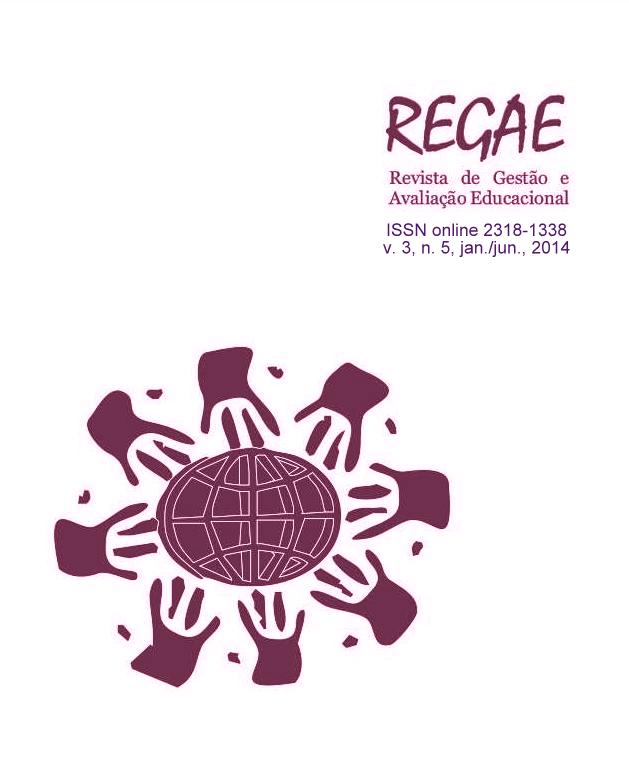Democratic management and fight for the recognition of deaf education
DOI:
https://doi.org/10.5902/2176217113425Abstract
This work searches on the democratic management some possibilities for understanding of the struggle for recognition of deaf education. The management of schools, after than the return to democracy in Brazil and its 1988 Constitution, has been changed its principles of school administration for the democratic management. With these changes of public policy for special education inclusive perspective, there are many deaf’s struggles to maintain the deaf schools in full operation. In front of this context the problem of survey questions, from the Teaching for the Deaf State School of Special Education Dr. Reinaldo Fernando Coser’s Experimental Project, the contribution of democratic governance for the recognition of deaf community. Shortly, try to look like a democratic enables the social recognition of otherness deaf and observe the conflicts inherent in the process of inclusive education, referenced in the National Special Education, as well as its viability with the practices of everyday education and, finally, identify the process of democratic management in this teaching. Leaned on the methodological approach of philosophical hermeneutics to thus, interpret and understand how concepts of democratic management and differences are understood by this course of teaching. Among the reflections that did present evidence that the deaf school in Santa Maria, having already emerged in a context of democratic management, seems to overcome some early closing of your culture from the commitments of its management in democratic perspective. The democratic management appears as the medium, necessary, of school for the deaf community in interaction with the listener, and thus allows a new reinterpreted possibility for understanding the struggle for recognition of deaf education.
Key-words: democratic management, deaf education, difference, struggle for recognition.
Downloads
References
BRASIL. Diretrizes nacionais para a educação especial na educação básica. Brasília: MEC-Seesp, 2001.
BRASIL. Lei de diretrizes e bases para a educação nacional n° 9394. Brasília,1996.
DEVECHI, Catia Piccolo Viero. Abordagens epistemológicas na pesquisa em educação. In: TREVISAN, Amarildo L. et al (org.). Diferença, cultura e educação. Porto Alegre: Sulina, 2010, p. 366-379.
ESCOLA ESTADUAL DR. REINALDO FERNANDO CÓSER. Projeto experimental de curso normal, em nível médio/ formação de professores surdos para atuar na educação infantil e nos anos iniciais do ensino fundamental. Santa Maria, 2009.
FANTINEL, Patrícia. A escola de surdos como espaços e tempos de ensinar e aprender. In: CASARIN, Melânia de Melo. Curso de Especialização à Distância em Educação Especial: Déficit Cognitivo e Educação de Surdos: Módulo III. Santa Maria: UFSM, 2009.
FÉLIX, Maria de Fátima Costa. Administração escolar: um problema educativo ou empresarial? São Paulo: Cortez/Autores Associados, 1986.
HABERMAS, Jürgen. Dialética e hermenêutica. Porto Alegre: L&PM, 1987.
HERMANN, Nadja. Hermenêutica e educação. Rio de Janeiro: DP&A, 2002.
HONNETH, Axel. Luta por reconhecimento: a gramática moral dos conflitos sociais. São Paulo: 347, 2003.
KLEIN, Madalena. Cultura surda e inclusão no mercado de trabalho. In: THOMA, Adriana da Silva; LOPES, Maura Corcini (orgs.). A invenção da surdez: cultura, alteridade, identidades e diferença no campo da educação. Santa Cruz do Sul: Unisc, 2004, v. 1, p. 83-99.
LIBÂNEO, José Carlos. Educação e escolar: políticas, estrutura e organização. São Paulo: Cortez, 2007.
MAZZOTTA, Marcos José Silveira. Educação especial no Brasil: história e políticas públicas. São Paulo: Cortez, 2005.
RAMPELOTTO, Elisane Maria. Processo e produto na educação de surdos. Santa Maria: UFSM, 1993. Dissertação (mestrado em Educação). Centro de Educação, Universidade Federal de Santa Maria.
REPA, Luiz. Reconhecimento da diferença na teoria crítica. In: TREVISAN, Amarildo L. et al (org.). Diferença, cultura e educação. Porto Alegre: Sulina, 2010, p. 17-34.
SAVIANI, Dermeval. Escola e democracia: teorias da educação, curvatura da vara, onze teses sobre educação e política. Campinas: Mercado das Letras, 1994.
SECRETARIA DE EDUCAÇÃO ESPECIAL. Política Nacional de Educação Especial na Perspectiva da Educação Inclusiva. Brasília: MEC-Seesp, 2008.
TAYLOR, Charles. Multiculturalismo: examinando a política de reconhecimento. Lisboa: Instituto Piaget, 1998.
WILLIAMS, Robert R. Hegel e Nietzche: reconhecimento e relação senhor/escravo. In: DOTTI, Jorge et al (org.). Estado e política em Hegel. Rio de Janeiro: Jorge Zahar, 2003, p. 78-100
Downloads
Published
How to Cite
Issue
Section
License
Authors keep copyright and concede to the magazine the right of first publication, with the work simultaneously licensed under the Creative Commons Attribution 4.0 International, non-commercial license with no derivative work, which allows to share the work with no author recognition and initial publication in this magazine.
Authors has authorization to overtake additional contracts separately, to distribute a non-exclusive version of the work published in this magazine: For example: to publish in an institutional repository or as a chapter of a book, with authorial recognition and initial publication in this magazine.
Authors are allowed and are encouraged to publish and distribute their work online. For example: in institutional repositories or in their own personal page – at any point before or during the editorial process, because this can result in productive changes, as well as increase the impact and the mention to the published work.






